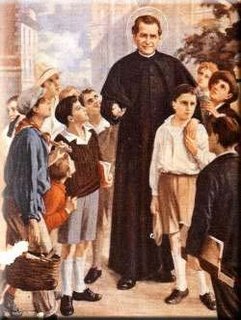
Blessed Didacus Joseph was born on March 29, 1743, in Cadiz, Spain. He was baptized Joseph Francis. His parents loved their faith and practiced it. He was brought up devoutly by his parents and his baptismal innocence remained with him throughout his life.
When he was old enough, Joseph learned how to serve Mass at the Capuchin Franciscan church just down the street. Joseph learned to love the Mass. He used to get up early enough to be at the church each morning to wait for the doors to be unlocked. He never missed a day.
One of the Capuchin priests or brothers gave Joseph a book about the lives of the Capuchin saints. He read it and read it again. Joseph learned every story. He grew to love the holy men who were poor and humble like Jesus.
The day came when he asked to join the order. At first he was refused entry because of poor education gaining entry only after a great deal of persistence. Although difficulties in studies remained with him during his years as a student, in time he was raised to the priesthood and then sent out to preach.
He was sent out to preach to the people the Good News of Jesus. He loved doing this. He had wonderful gifts for preaching the Word of God and it soon became evident. He travelled throughout Spain teaching and preaching in remote villages and crowded towns. His homilies were so clear and kind that people listened.
Everyone marvelled at the singular power and sweetness of his words, which swayed his audiences and left marked impressions on their lives. They even brought friends to listen. Soon an ordinary church was too small for the crowds. When Father Didacus was preaching, the talks were held outdoors, usually in the town square or in the streets.
Father Didacus loved to preach about the Blessed Trinity. He was always available to hear confessions, too. He was happy when people came to the sacrament of Reconciliation. He was capable of touching the heart of those who came to him for confession. Whenever he had some free time, he visited prisons and hospitals. He also would pay calls at the homes of shut-ins. Most of his nights were spent in prayer.
It was undoubtedly the Holy Spirit who because of Didacus' humility and virtue, converted this unlearned man into the most celebrated preacher in Spain. No doubt the Holy Spirit listened to his long and ardent prayers for guidance during the time that he spoke. On occasions Father Didacus was raised supernaturally into the air so that he required assistance to regain the floor of the pulpit.
Father Didacus died in 1801 and was declared "blessed" by Pope Leo XIII in 1894.




